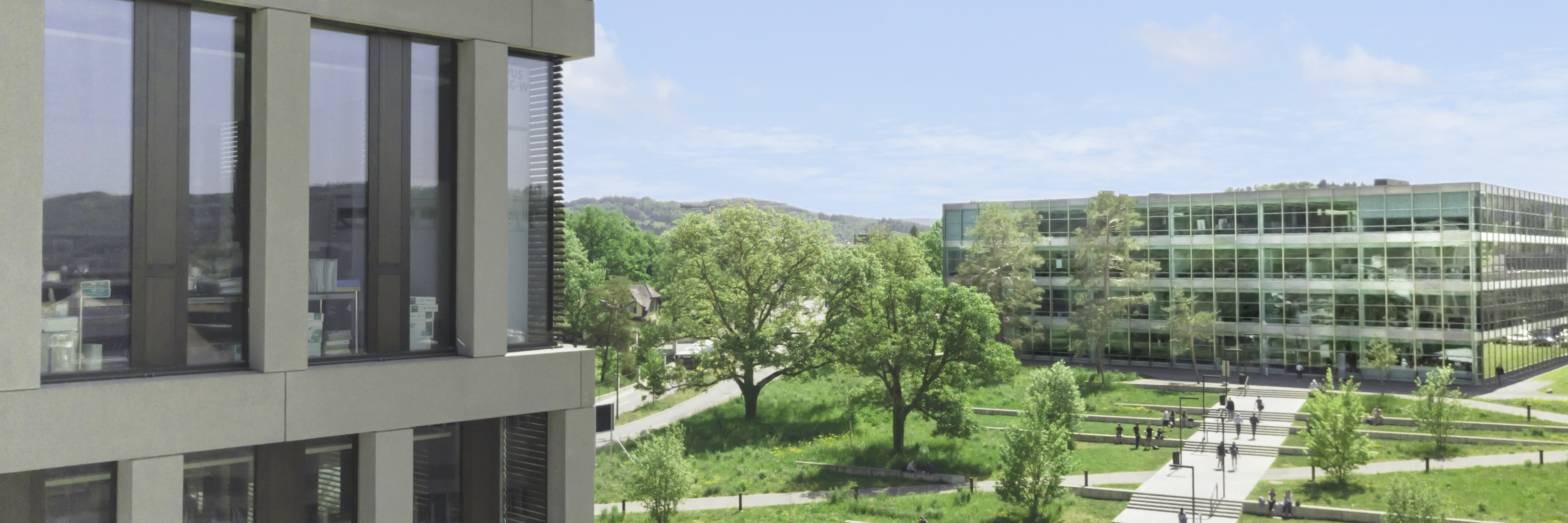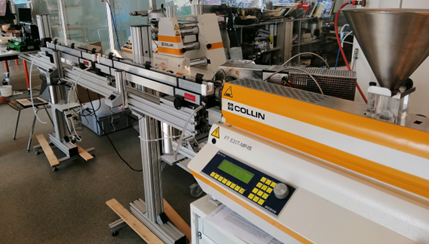Sustainable sealing profiles made using biopolymers
The production of sealing profiles for doors and windows can be realized using sustainable biopolymers.
- Thermoplastic elastomers
- Biopolymers
- Extrusion
Around 300 tons of elastomers flow through the three extrusion lines of the Wynental-based poesia group every year. The plastics company supplies the entire Switzerland with sealing profiles from Unterkulm; large window and door manufacturers, but also joineries and private customers.
The goal of the project was to use the existing extrusion tools to develop a product line of sealing profiles using sustainable biopolymers. The organic content of the new material should be at least 40 percent and be close to the mechanical, optical and thermal properties of the standard material. The raw materials used for the biopolymer should not come from food production.
An extended market research was carried out with the specifications drawn up. Based on the desired properties, three biopolymers from two companies stood out. Material tests and extrusion trials on the laboratory extruder at the Institute of Polymer Engineering were able to evaluate the sampled materials as suitable for large-scale trials.
The three biopolymers were tested on a production line at Poesia Holding AG using five existing extrusion tools.
The extruded sealing profiles were subjected to an elongation behavior and a fatigue test and exceeded the expectations of Poesia Holding AG. The sustainable product line exhibited greater form stability in the endurance test and showed less wear.
Two months after the feasibility study was completed, the new product line was launched via the web store.
Client | |
Execution | |
Duration | 7 months |
Funding | |
Project team | FHNW: Prof. Dr. Christian Rytka, Simone Battaglia Poesia Holding AG: Michael Brändli, Daniel Kurmann HTZ Experte: Leendert den Haan |


